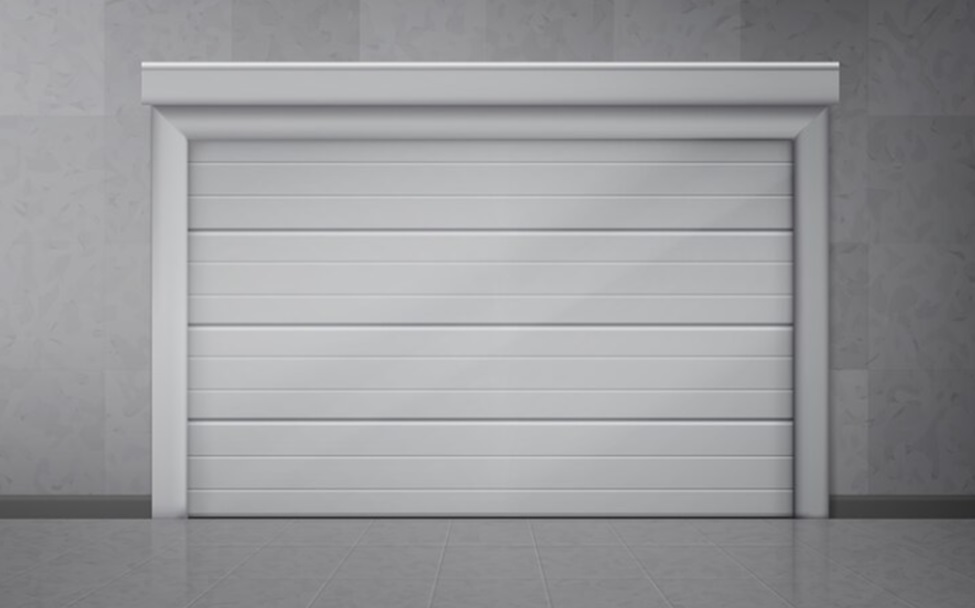Garage doors are a vital part of any home, offering security, convenience, and aesthetic appeal. When it’s time to replace or install a new garage door, several factors come into play to ensure you choose the right one. From materials to smart functions, garage size, and budget considerations, here’s a comprehensive guide to help you make an informed decision.
Material of the Door
Common materials include steel, aluminum, wood, and fiberglass. Steel doors are sturdy, low-maintenance, and offer excellent insulation, making them a popular choice for many homeowners. Aluminum doors are lightweight, rust-resistant, and suitable for coastal areas.
Wood doors add a touch of elegance but require regular maintenance to prevent warping or rotting. Fiberglass doors mimic the look of wood without the maintenance hassles but may not be as durable as steel or aluminum.
When selecting a material, consider factors such as climate, maintenance preferences, and budget constraints. For example, if you live in a humid area, a steel or fiberglass door might be a better option than wood to prevent moisture-related issues. Additionally, factor in insulation properties if you use your garage for more than just parking cars, as this can impact energy efficiency and comfort.
Smart Door Functions
Modern technology has transformed garage doors with smart functions that enhance security and convenience.
Smart garage door openers allow you to control and monitor your garage door remotely using a smartphone app. You can open and close the door, receive notifications of activity, and integrate it with home automation systems for added functionality.
When choosing a garage door opener, look for features such as Wi-Fi connectivity, battery backup in case of power outages, and compatibility with voice assistants like Amazon Alexa or Google Assistant. Some openers also offer advanced security features like rolling code technology to prevent hacking attempts. You will also need an expert for garage door installation for these smart functions.
Size of the Garage
The size of your garage directly influences the type and size of garage door you need. Standard garage door sizes typically range from single-car (8-9 feet wide) to double-car (16-18 feet wide). However, custom sizes are also available to accommodate oversized or non-standard garage openings.
Before purchasing a garage door, measure the width and height of your garage opening accurately. Consider any obstructions such as ceiling-mounted storage or lighting fixtures that may affect the door’s operation. Additionally, assess your parking needs and whether you require additional space for storage or workspace inside the garage.
Budget for the Door
Your budget is a significant consideration especially when choosing a residential garage door. The cost can vary widely based on factors such as material, insulation, design, and optional features like windows or decorative hardware.
Steel doors are generally more affordable than wood or custom-designed doors, while additional features like smart functions or high-end finishes can increase the overall cost.
It’s really important to balance quality, durability, and aesthetics within your budgetary constraints. Factor in long-term savings from energy-efficient doors or low-maintenance materials that may offset initial costs over time. Explore financing options or seasonal promotions offered by manufacturers or installers to maximize value for your investment.
 Kindness and Quiet Help Everyone Enjoy the Office Entertainment Site Together
Kindness and Quiet Help Everyone Enjoy the Office Entertainment Site Together  Machine Learning with Excel: A Beginner’s Guide
Machine Learning with Excel: A Beginner’s Guide  Transforming Singapore’s Transport System The Ultimate Convenience of Promenade Peak
Transforming Singapore’s Transport System The Ultimate Convenience of Promenade Peak  Using CAGR Calculator for Business Revenue Forecasts
Using CAGR Calculator for Business Revenue Forecasts  Chencharu Close Condo Mix Development The Ultimate Address for Modern City Living with Exceptional Transport Links and Future-Ready Amenities
Chencharu Close Condo Mix Development The Ultimate Address for Modern City Living with Exceptional Transport Links and Future-Ready Amenities  How to Prevent Aches and Pains from Everyday Activities
How to Prevent Aches and Pains from Everyday Activities  Expanding Horizons Enrichment Centers and Special Education Institutions Near The Sen Condo
Expanding Horizons Enrichment Centers and Special Education Institutions Near The Sen Condo  How Commercial Cleaning Enhances the Environment in Toledo’s Dental Labs
How Commercial Cleaning Enhances the Environment in Toledo’s Dental Labs  Here’s Why a UAE Trade License is the First Step to Business Success
Here’s Why a UAE Trade License is the First Step to Business Success 




